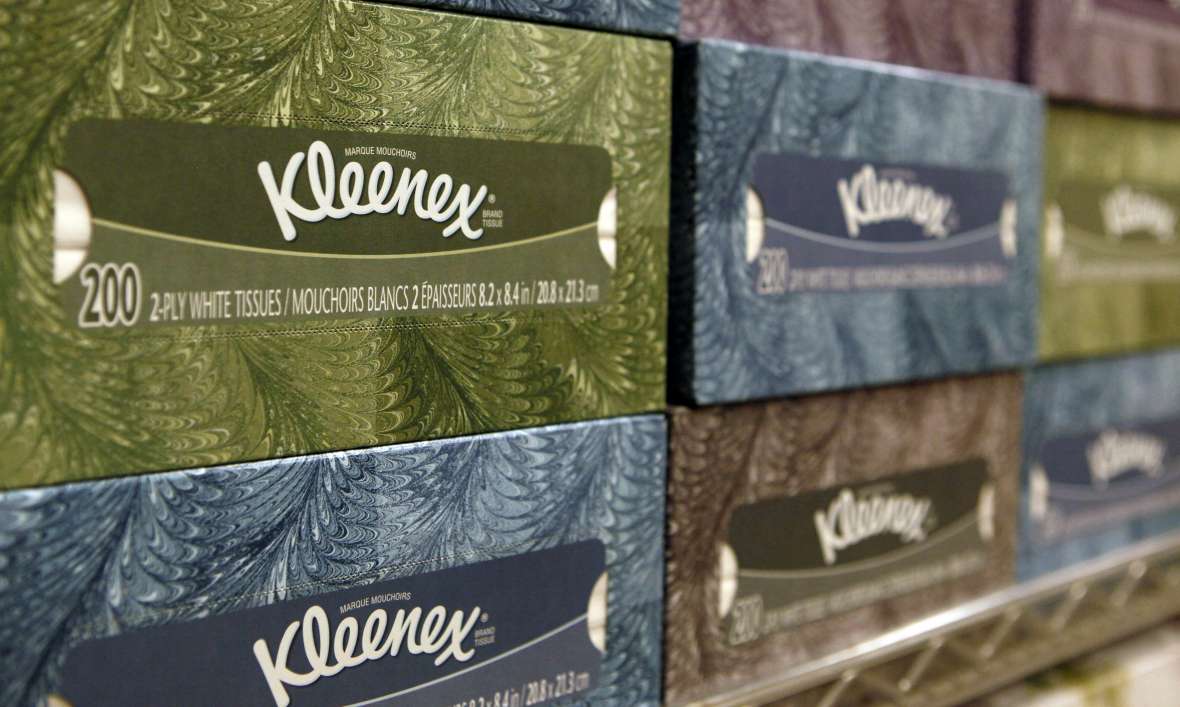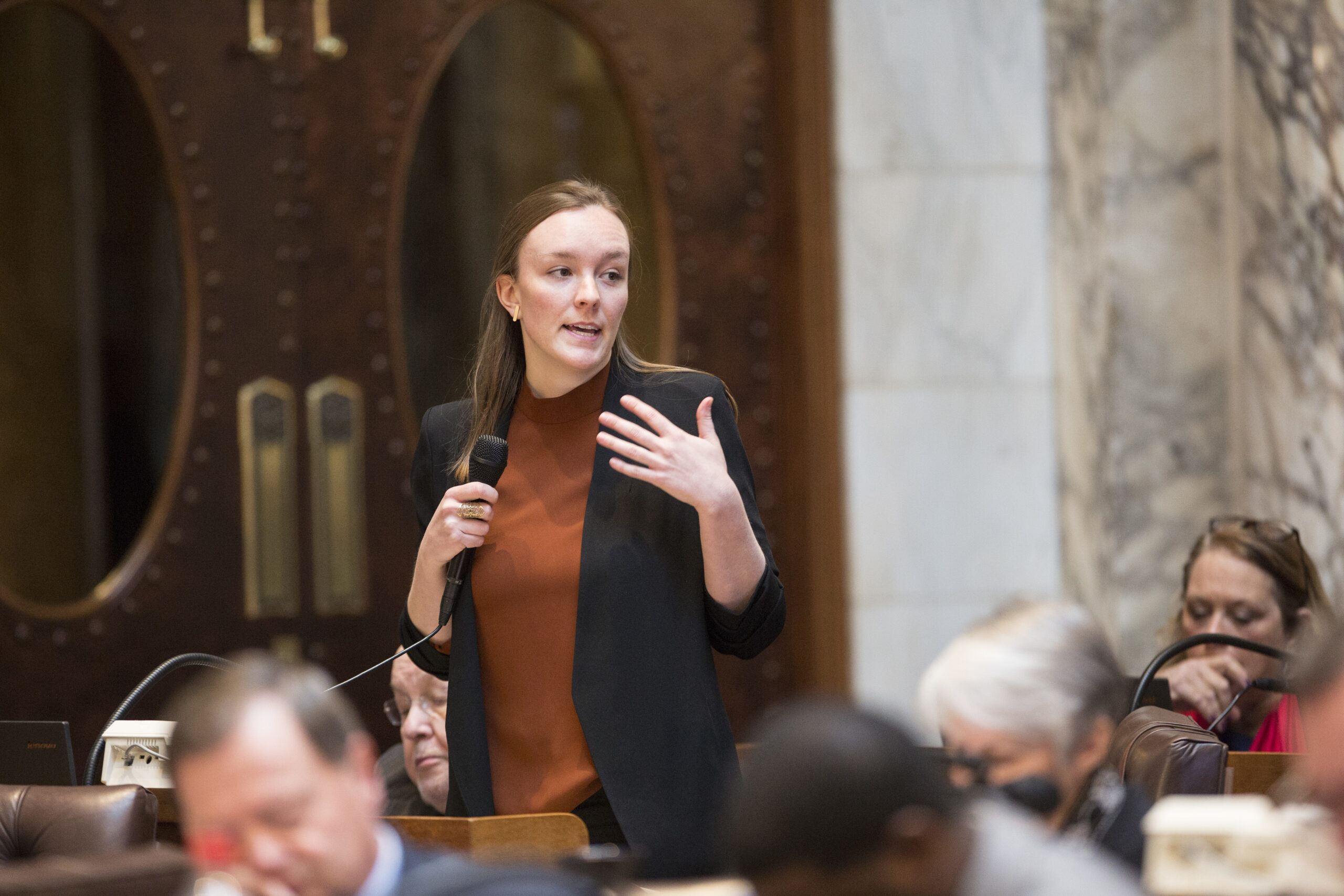A proposal aimed at keeping two Kimberly-Clark plants open in the Fox Cities faces an uncertain future in the state Senate. We discuss the bill’s chances of making it to Gov. Scott Walker’s desk. Then, our guest explains why he calls the package “bad economics” and why he says conservatives should be “very skeptical” of the deal.
Featured in this Show
-
Kimberly-Clark Bailout Plan Faces Uncertain Future In State Senate
A proposal that would offer tax incentives to consumer products manufacturer Kimberly-Clark to prevent the closure of two plants in the Fox Cities is facing both an uncertain future and strong opposition before the state Senate.
Kimberly-Clark announced in January it would be closing two plants in Neenah and Fox Crossing, cutting about 600 jobs over 18 months as part of a global restructuring.
“You have competing pressures from people who don’t like the philosophy of this (proposal), and some saying the governor wants it,” JR Ross, editor at WisPolitics.com, said. “They’re asking, ‘Do you really want to try and deny him this bill?’ Especially in an election year, especially when there are people in the district who really want this.”
The proposal pushed by Gov. Scott Walker would make Kimberly-Clark eligible for tax credits of 17 percent on employee wages, up from the current rate of 7 percent, and 15 percent on capital expenditures over a five-year period, up from the standard rate of 10 percent. It would also be exempt from the state’s sales tax on capital expenditures for five years.
Part of what is driving this proposal is the deal that Walker landed with Foxconn Technology Group with similar tax credits that equaled out to nearly $3 billion in state tax incentives for the Taiwanese company, Ross said.
“There is some pressure on (legislators) to do whatever they can to get a company like Kimberly-Clark to stay in Wisconsin, operating full capacity and not cutting jobs,” he said.
The proposal passed the state Assembly last month by a vote of 56-37. Legislative approval is required and will be voted on in the Senate later this month before the bill can move forward.
“The fate is very much up in the air and it could be a matter of how much can Gov. Walker persuade these guys (senators) to get on board with this bill,” Ross said.
Walker has argued job retention at companies like Kimberly-Clark is just as important as job creation. But several conservative groups and members of the more conservative wing of the caucus have come out in opposition to the deal.
“There are some republicans who will probably tell you, even if we pass this bill, they’re not sure it will have an impact on Kimberly-Clark,” Ross said. “We’re talking about global economic factors with this decision about these two Neenah plants.”
Tough market conditions that aren’t expected to improve anytime soon are driving the company to restructure this year. Sales are expected to rise by about 1 percent this year, but they will continue to trail competitors like Colgate-Palmolive and Unilever, the company has said.
That’s why the Badger Institute, along with three other conservative groups, say the government should let the free market play out and not pick winners and losers, said Michael Jahr, vice president of outreach and special projects at the Badger Institute.
“No one wants to see jobs lost obviously, but at the same time it really comes down to a question of, is it a core function of government to try to micromanage the economy?” he said. “What we see here with the Kimberly-Clark proposed tax deal is Kimberly-Clark is facing market realities.”
Jahr argues creating a tax and regulation structure that is inviting for all business and creates a level playing field is a better model for attracting business and incentivizing business that is already in the state.
He also calls the proposal Walker and supporters are pushing a short-term solution that gives some companies an unfair advantage over competitors.
“We’re not talking about tax relief or tax cuts, we’re talking about refundable tax credits where taxpayers are basically giving money to companies to do business,” he said. “That’s just a losing proposition.”
Yet supporters of the bill argue Kimberly-Clark is a vital business to Wisconsin’s economy and exceptional steps to protect its status as a top employer in the Fox Valley are necessary.
“My concern is that if the Senate passes this legislation and sets this precedent, that’s not just Foxconn, but any business that might be in jeopardy of closing its doors or contracting or laying people off, how can any politician say to them, well you don’t get it, but this guy deserves it,” Jahr said.
So far, Kimberly-Clark has been non-committal that the bill will make a difference in the 600 jobs expected to be cut, but it is under consideration, Ross said.
“It’s going to be an interesting fight come March 20,” he said. “We’ll see the calendar for that day the week before, and if it (the bill) doesn’t make it, it’s not going to get done this session likely.”
Episode Credits
- Kate Archer Kent Host
- Bill Martens Producer
- JR Ross Guest
- Michael Jahr Guest
Wisconsin Public Radio, © Copyright 2025, Board of Regents of the University of Wisconsin System and Wisconsin Educational Communications Board.






